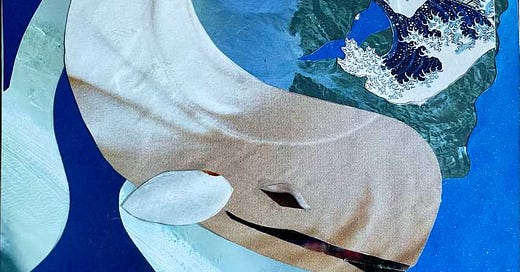I’ve found myself in a writing limbo, but I have to remind myself there is no writing limbo. Just because I’m not focusing on my book (though I should be, I need to be, the next step is calling to me), it doesn’t mean I can’t write. Write something different, something new, unconnected!
But it always comes back to that book, because I have not finished my conversation with that story. It’s a dangling conversation.
Give yourself Eigenzeit
How did I get here? I researched (my book is historical speculative fiction), outlined, and then wrote the first draft by hand, before typing it up chapter by chapter. I ran through the overall story structure, shifted chapters around, tweaked stuff. Then I went through the entire book with my writer’s group—two amazing beta readers and writing companions, hands down (shout out to Irene and Tricia!). I edited as we went.
And then…the lull. The pause. Limbo.
I remind myself, setting the book aside is important. It has been on my mind and flowing from my pen every single day for a couple of years, and to allow myself perspective, I need to give myself space. Luckily, this coincided with a very busy period of work and travel, both personal and work-related, so I was also able to recover (sleeping in!), and not beat myself up about losing the story thread.
The busy period ended. I rested. And then I began to work on the query letter and synopsis, easing myself back into the story.
Writing the synopsis was helpful. It forced me to pare the story down to two pages without leaving out major plot points or character arcs. Because I still have a final read-through to do (just one, maybe more?), it’s possible I’ll have to edit my synopsis if I make a major change in my book, but even if I do, I stand by the fact that writing out the Dreaded Synopsis at this point in the process was valuable.
The white whale for writers everywhere
But it’s been hard to dive back into that final read-through. I want a steady chunk of time, a free weekend or several weeks that I know won’t be interrupted; but between work and my personal life, I keep putting it off. The thing is, I won’t be given that chunk. I have to set aside that time myself, or work around not ever having it.

As many downsides as it had, the pandemic did give me endless chunks of time in which I could do personal projects, like writing, exactly as I pleased. I thought I was “so good” with my writing during the pandemic, but really, I just had more time. I kept my full-time job, thankfully; but without the events and travel this job normally requires, I simply had more time to devote to writing—rather, I was able to wake up two hours early, consistently, and not suffer from lack of sleep. I was able to keep the conversation going instead of picking up in fits and starts, two steps forward and one step back.
Back to reality. Because now comes the hard part: balancing writing with a full-time job, active life, and diverse interests, as activities resume post-pandemic intensity. I think all writers struggle with this, and I don’t know anyone who has found the ideal balance. I think, sometimes, the ideal balance is the White Whale of writers’ lives; perhaps all of our lives. Maybe if I can recognize and accept this, it will sit with me easier. Oliver Burkeman in Four Thousand Weeks: Time Management for Mortals concluded exactly that:
“I don’t think the feeling of anxiety ever completely goes away; we’re even limited, apparently, in our capacity to embrace our limitations. […] This confrontation with limitation also reveals the truth that freedom, sometimes, is to be found not in achieving greater sovereignty over your own schedule but in allowing yourself to be constrained by the rhythms of community—participating in forms of social life where you don’t get to decide exactly what you do or when you do it. And it leads to the insight that meaningful productivity often comes not from hurrying things up but from letting them take the time they take, surrendering to what in German has been called Eigenzeit, or the time inherent to a process itself.”
And you know what? Even just reading that again gives me a sense of calm!
Stuff I like
Four Thousand Weeks: Time Management for Mortals by Oliver Burkeman
This article about Danielle Steele. I’m a little in awe of her. Hasn’t she achieved the ultimate writer’s dream? Monetary success, practically a household name, prolific writing; and yet she’s still utterly obsessed with writing, sleeping apparently four hours a night. Which tells me…even she would take more time to write if she could stuff a 24-hour day with 48 hours.


